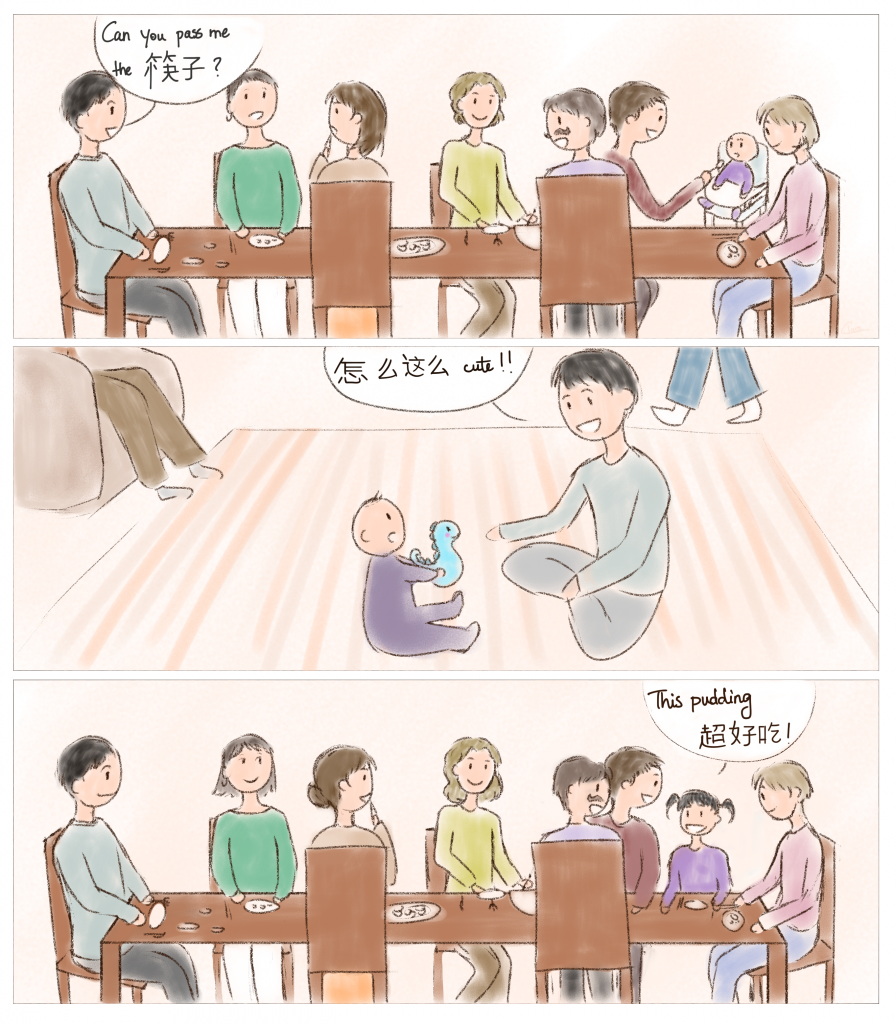How does caregiver codeswitching (or mixing languages) affect a child’s language development?

At first glance, codeswitching can appear to be a difficult way to learn languages. Instead of learning each language neatly, in isolation, children have to make sense of two languages intertwined. This may be just an impression however.
Codeswitching can help a child strengthen skills in another language. For example, caregivers may use immediate translation of a sentence in one language with which a child is less familiar (e.g., “Trae la pelota. Bring the ball”). Codeswitching can also help a child understand another language. For example, caregivers may borrow just one word from a language with which a child is more familiar (“Bring your gato plush toy”). Beyond pure language skills, codeswitching the way others in the community or family sphere do allows a child to pick up on community norms and the way others speak. These skills can be vital for future social interactions!
The effect that codeswitching versus not codeswitching has on language development is difficult to measure directly. Some effects scientists have observed are that codeswitching can be beneficial. Codeswitching to children seems to promote prosocial behaviour, allowing children to interact with ease in multi-language environments.
One myth is that children who codeswitch are confused and mixing up their languages. Actually, children tend to codeswitch about as much as their caregivers! Codeswitching is a normal phenomenon in multi-lingual families and communities. If you usually codeswitch, there is no need to force yourself to speak a different way. Just relax and let yourself be carried away in the conversation!
The scientific sources of our comic:
Byers-Heinlein, K. (2013). Parental language mixing: Its measurement and the relation of mixed input to young bilingual children’s vocabulary size. Bilingualism; Cambridge, 16(1), 32–48. http://dx.doi.org.lib-ezproxy.concordia.ca/10.1017/S1366728912000120
Byers-Heinlein, K., Jardak, A., Fourakis, E., & Lew-Williams, C. (2020, February 28). Effects of language mixing on bilingual children’s word learning. https://doi.org/10.31234/osf.io/298cz
Heredia, R. R., & Altarriba, J. (2001). Bilingual Language Mixing: Why Do Bilinguals CodeSwitch? Current Directions in Psychological Science, 10(5), 164–168. https://doi.org/10.1111/1467-8721.00140
Kremin, L. V., Alves, J., Orena, A., Polka, L., & Byers-Heinlein, K. (2020, April 29). Code-switching in parents’ everyday speech to bilingual infants. https://doi.org/10.31234/osf.io/rk2ah
